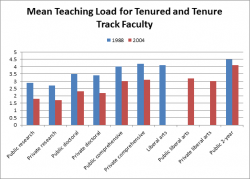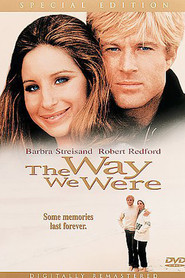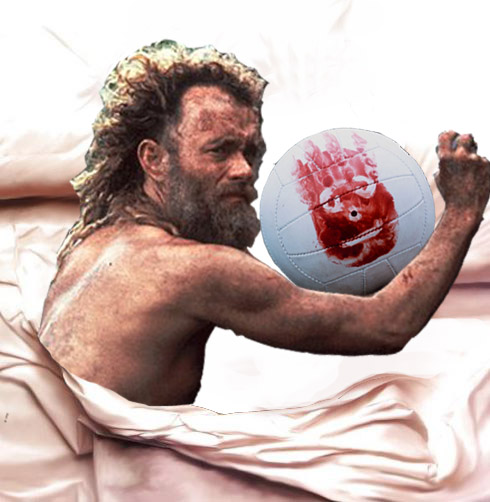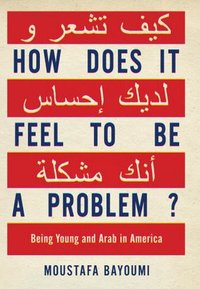
Do college professors work harder than other upper-middle-class Americans, or less hard? Former college president David C. Levy’s March 23 op-ed in the Washington Post, arguing that faculty members ought to increase their classroom time by up to 67 percent, ignited a fierce debate in academe. Levy’s op-ed alone generated 1,352 comments online, mostly from […]
Read More
David C. Levy’s Washington Post article, “Do college professors work hard enough?” set off quite the firestorm. His basic point was that we currently “pay for teaching time of nine to fifteen hours per week for 30 weeks,” but that If the higher education community were to adjust its schedules and semester structure so that […]
Read More
Some two-thirds of America’s college students are taught by adjuncts, and now the battle is on over whether these low-paid, low-status workers should be unionized. Adjuncts, also called contingent faculty, are teachers hired without tenure, paid a small fraction of those on tenure-track positions, (typically $2700 per course, with minimal benefits). All three college faculty […]
Read More
The Chronicle recently featured an article about the Adjunct Project, a program put together by a University of Georgia adjunct named Joshua Boldt “asking fellow adjuncts to enter information about their pay and working conditions.” Adjuncts are often underpaid. They also generally do not have research or service expectations, and they are almost never hired […]
Read More
Accountability is all the rage in today’s education reform industry and at the university level, “productivity” typically means upping scholarly publishing. The allure is simple–who can resist prodding lolling-about professors to generate more knowledge? Unfortunately, putting the thumbscrews on idle faculty will only push universities farther to the left. Better to pay professors for silence. […]
Read More
It’s hard to tell whether it’s a news story or a media meme: Florida’s Republican Gov. Rick Scott, a fan of Texas Republican Gov. (and current GOP presidential candidate) Rick Perry, is reportedly considering foisting on Florida’s public universities the same much-criticized reform proposals that Perry has been trying to foist on public universities in […]
Read More
The American Association of University Professors has now issued its final report on “Ensuring Academic Freedom in Politically Controversial Academic Personnel groups.”) The basic principle is as unobjectionable as it is admirable: professors should not be hired, fired, or disciplined on the basis of their political beliefs. Yet the AAUP’s report is basically unchanged from […]
Read More
A huge brouhaha has erupted over the release and interpretation of data about the faculty of the University of Texas, centering on whether a relatively few individuals are doing most of the teaching at the system’s flagship institution, UT-Austin. Two reports drew most of the fire, one by my organization, the Center for College Affordability and Productivity […]
Read More
It’s no secret that America’s colleges and universities have become bastions of political rectitude. This is often attributed to the left-liberal political orientation of the faculty. Typically, however, the administration, not the faculty, is the driving force behind efforts to promote campus diversity, to build multicultural programming and to regulate campus speech. The president of […]
Read More
The firing of a controversial aide to the University of Texas system has triggered a full-blown debate over the productivity of teachers and whether “star” professors who teach few classes are really worth the cost to the public. Rick O’Donnell, dismissed on April 19 after only 49 days on the job as special adviser to […]
Read More
I recently posted an essay here about a racial hoax at the University of Virginia Law School that quickly became an issue implicating the University’s honor code. Briefly, Johnathan Perkins was an attractive third year UVa law student from what could be described as a civil rights family inasmuch as both his father and grandfather wrote […]
Read More
In Frank Baum’s The Wizard of Oz the Wizard says he wants an educated populace, “so by the power vested in me I will grant everyone out.” My guess is if a university president were completely honest today, he might say the freshman bring almost nothing in and leave by taking nothing out. The question […]
Read More
If you are a college student today enrolled in four classes during any given semester, it is likely that only one of your teachers is employed by your school in a permanent position that comes with a middle-class salary, job security, and benefits. The other three are contingent faculty, often called “adjuncts”; they have job […]
Read More
At research universities in the United States, most departments in the humanities have a travel budget that supports professional activities for their faculty members. Most of it goes to help professors attend academic conferences and deliver a paper to colleagues and attend sessions as an audience member as well. For a department of 30 people, the amount […]
Read More
After spending four depressing days this month at a meeting of 3,000 writing teachers in Atlanta, I can tell you that their parent group, the Conference on College Composition and Communication, is not really interested in teaching students to write and communicate clearly. The group’s agenda, clear to me after sampling as many of the […]
Read More
Many people, some conservatives included, say we need to get ideology out of the college classroom. Some professors say proudly, “my students never come to know where I stand.” I practice an opposite approach. I tell students that I am a free-market economist, a classical liberal or libertarian. And I am not suggesting that […]
Read More
I head an organization, the National Association of Scholars (NAS), that is often accused by its critics on the academic left of nostalgia for days when higher education was an exclusive club for the privileged. The accusation is false. NAS focuses on the enduring principles of the university: rational inquiry, liberal learning, and academic freedom. […]
Read More
One feature of academia’s less reputable quarters is the imperative to shun the obvious and prosaic, even when the obvious and prosaic happen to be true. As Theodore Dalrymple noted in his review of Thomas Sowell’s Intellectuals and Society, Intellectuals, like everyone else, live and work in a marketplace. In order to get noticed they […]
Read More
Judged by the recent avalanche of autopsy-like books, American higher education appears troubled. Alleged evil-doers abound, but one culprit escapes unnoticed–the horrific sartorial habits of many of today’s professors. Don’t laugh. As Oscar Wilde brilliantly observed, only shallow people do not judge by appearances. Indeed, I would argue that much of what plagues today’s academy […]
Read More
Howard Zinn, the late self-described “socialist anarchist” history professor and mentor to the New Left, would have been proud of the way the Wisconsin protests rolled along. The weeks-long sit-in of the Wisconsin state capitol building–heavily populated by teachers and students–exemplified the kind of “participatory democracy” his associate Tom Hayden promoted in the Port Huron […]
Read More
Not surprisingly, the University of Wisconsin at Madison has been deeply affected by the important labor dispute that has consumed the state, its capitol, and the nation the last two weeks. Passions are high, especially over the part of Governor Scott Walker’s budget proposal that will drastically limit collective bargaining by state employees covered by […]
Read More
I haven’t read Richard Arum and Josipa Roksa’s Academically Adrift: Limited Learning on College Campuses, and frankly, I’m not sure that I want to. Having had high expectations of other widely touted books on higher education—most recently, Hacker and Dreifus’s Higher Education?, Martha Nussbaum’s Not For Profit, Mark Taylor’s Crisis on Campus—and having been sadly […]
Read More
Teaching periodically reaches the public’s attention, as in a recent statement by a group of scientists about the failure of research universities to train their students to be good teachers. The New York Times ran a report on a study published in Science that led its lead researcher to contend: “I think that learning is […]
Read More
When Minding the Campus asked me if I would write something about two Canadian engineering professors walking out of class to protest rude and disruptive students in their classrooms, I happily obliged. What harm, I told myself, could there be, after so many years of avoidance, to re-visit this issue? After all, it has been […]
Read More
What if all college professors were forced to be higher-education entrepreneurs, with salaries pegged to the number of students they attract to their classes? That’s the model recently proposed by a Texas professor who styled himself “Publius Audax” on a Pajamas Media blog. Publius launched his proposal, he wrote, as the solution to a projected […]
Read More
What if all college professors were forced to be higher-education entrepreneurs, with salaries pegged to the number of students they attract to their classes? That’s the model recently proposed by a Texas professor who styled himself “Publius Audax” on a Pajamas Media blog. Publius launched his proposal, he wrote, as the solution to a projected […]
Read More
One consistent challenge in teaching is remembering how little students really know and how much they think they know. This is not a putdown of students. On the contrary, it is a celebration of optimism in the best sense of the word, the same optimism that was supposed to have inspired Winston Churchill to observe: […]
Read More
How Does It Feel to Be a Problem? Being Young and Arab in America—the controversial book assigned for freshman reading at Brooklyn College—is, in my opinion, an important but seriously flawed work, and one that should be read, but not as a sole required text for incoming English students. In the book Brooklyn College English […]
Read More
The National Research Council has finally issued its rankings of doctoral programs, with coverage appearing here, here, and here . Right now, everybody is trying to assimilate the results, which are more complicated than those in the 1995 report. The “Data-Based Assessment” runs to 282 pages, the “Guide to the Methodology” 57 pages, and each […]
Read More